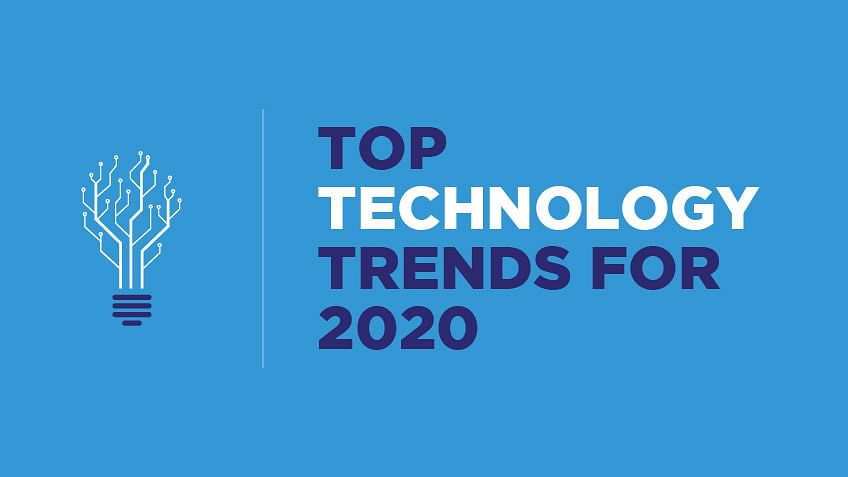
Technology is now evolving at such a rapid pace that annual predictions of trends can seem out-of-date before they even go live as a published blog post or article.
As technology evolves, it enables even faster change and progress, causing an acceleration of the rate of change, until eventually, it will become exponential.
Technology-based careers don’t change at the same speed, but they do evolve, and the savvy IT professional recognizes that his or her role will not stay the same. And an IT worker of the 21st century will constantly be learning (out of necessity if not desire).
What does this mean for you?
It means staying current with technology trends. And it means keeping your eyes on the future, to know which skills you’ll need to know and what types of jobs you want to be qualified to do. Here are eight technology trends you should watch for in 2020, and some of the jobs that will be created by these trends.
Top Trending Technologies
1. Artificial Intelligence (AI)
Artificial Intelligence, or AI, has already received a lot of buzz in recent years, but it continues to be a trend to watch because its effects on how we live, work, and play are only in the early stages. In addition, other branches of AI have developed, including Machine Learning, which we will go into below. AI refers to computer systems built to mimic human intelligence and perform tasks such as recognition of images, speech or patterns, and decision making. AI can do these tasks faster and more accurately than humans.
Five out of six Americans use AI services in one form or another every day, including navigation apps, streaming services, smartphone personal assistants, ride-sharing apps, home personal assistants, and smart home devices. In addition to consumer use, AI is used to schedule trains, assess business risk, predict maintenance, and improve energy efficiency, among many other money-saving tasks.
2. Machine Learning
Machine Learning is a subset of AI. With Machine Learning, computers are programmed to learn to do something they are not programmed to do: they learn by discovering patterns and insights from data. In general, we have two types of learning, supervised and unsupervised.
While Machine Learning is a subset of AI, we also have subsets within the domain of Machine Learning, including neural networks, natural language processing (NLP), and deep learning. Each of these subsets offers an opportunity for specializing in a career field that will only grow.
AI is one part of what we refer to broadly as automation, and automation is a hot topic because of potential job loss. Experts say automation will eliminate 73 million more jobs by 2030. However, automation is creating jobs as well as eliminating them, especially in the field of AI: Pundits predict that jobs in AI will number 23 million by 2020. Jobs will be created in development, programming, testing, support, and maintenance, to name a few. Artificial Intelligence architect is one such job. Some say it will soon rival data scientists in need of skilled professionals. To learn more about potential jobs in AI, read about building a career in AI, or why you should earn an AI certification.
3. Robotic Process Automation or RPA
Like AI and Machine Learning, Robotic Process Automation, or RPA, is another technology that is automating jobs. RPA is the use of software to automate business processes such as interpreting applications, processing transactions, dealing with data, and even replying to emails. RPA automates repetitive tasks that people used to do. These are not just the menial tasks of a low-paid worker: up to 45 percent of the activities we do can be automated, including the work of financial managers, doctors, and CEOs.
Although Forrester Research estimates RPA automation will threaten the livelihood of 230 million or more knowledge workers or approximately 9 percent of the global workforce, RPA is also creating new jobs while altering existing jobs. McKinsey finds that less than 5 percent of occupations can be totally automated, but about 60 percent can be partially automated.
Comments
Post a Comment